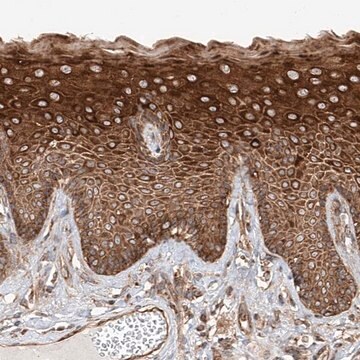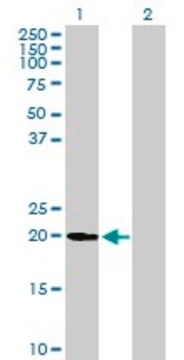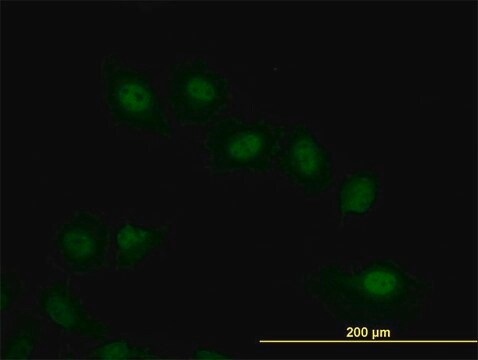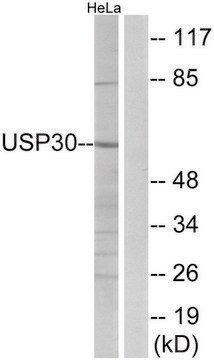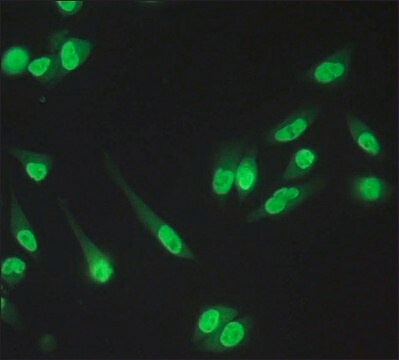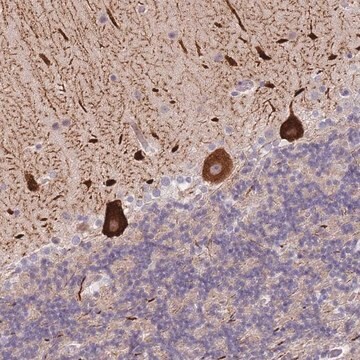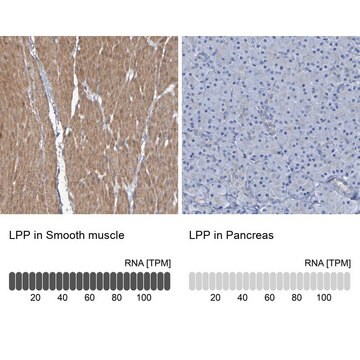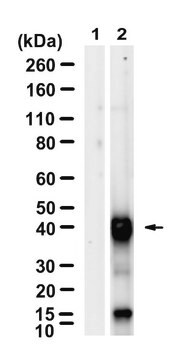WH0008493M1
Monoclonal Anti-PPM1D antibody produced in mouse
clone 4D1, purified immunoglobulin, buffered aqueous solution
Synonym(s):
Anti-PP2CDELTA, Anti-WIP1, Anti-protein phosphatase 1D magnesium-dependent, delta isoform
About This Item
Recommended Products
biological source
mouse
Quality Level
conjugate
unconjugated
antibody form
purified immunoglobulin
antibody product type
primary antibodies
clone
4D1, monoclonal
form
buffered aqueous solution
species reactivity
human
technique(s)
indirect ELISA: suitable
western blot: 1-5 μg/mL
isotype
IgG1κ
GenBank accession no.
UniProt accession no.
shipped in
dry ice
storage temp.
−20°C
Gene Information
human ... PPM1D(8493)
General description
Immunogen
Sequence
IGLVPTNSTNTVMDQKNLKMSTPGQMKAQEIERTPPTNFKRTLEESNSGPLMKKHRRNGLSRSSGAQPASLPTTSQRKNSVKLTMRRRLRGQKKIGNPLLHQHRKTVCVC
Physical form
Legal Information
Disclaimer
Not finding the right product?
Try our Product Selector Tool.
Storage Class
10 - Combustible liquids
flash_point_f
Not applicable
flash_point_c
Not applicable
ppe
Eyeshields, Gloves, multi-purpose combination respirator cartridge (US)
Choose from one of the most recent versions:
Certificates of Analysis (COA)
Don't see the Right Version?
If you require a particular version, you can look up a specific certificate by the Lot or Batch number.
Already Own This Product?
Find documentation for the products that you have recently purchased in the Document Library.
Global Trade Item Number
| SKU | GTIN |
|---|---|
| WH0008493M1-100UG | 4061831649055 |
Our team of scientists has experience in all areas of research including Life Science, Material Science, Chemical Synthesis, Chromatography, Analytical and many others.
Contact Technical Service
